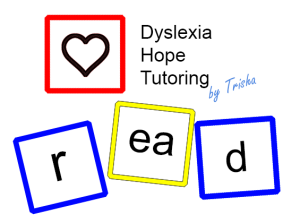 1) The proper reading instruction
1) The proper reading instruction
Research from the NIH has shown that the root cause of reading problems is a lack of phonemic awareness.
Phonemes are the smallest unit of spoken language – the individual sounds that make up syllable. There are 44 phonemes in English.
There are 7 essential phonemic awareness skills that are needed to distinguish and manipulate sounds within syllables. These skills tend to come naturally to typical readers.
Without good phonemic awareness skills learning the relationship between sounds and letter is very challenging.
Phonemic awareness skills can be learned! They need to be directly and explicitly taught to most people with dyslexia.
Many independent research studies have shown that Orton-Gillingham (OG) based systems are the best method to improve the reading and spelling skills of people with dyslexia. Research does not support the use of ‘whole language’ reading approaches to teach dyslexic children.
2) Patience and understanding
But just as important, kids with dyslexia also need adults around them to be patient and understanding of what they are dealing with.
Low self-esteem, anxiety and depression are very common in people with dyslexia. Some may also have difficulties with social interactions if they have problems finding the right words quickly to express themselves. ADHD and autism are also not unusual in dyslexic people.
I’m not dyslexic but I remember when I was a kid that there were kids in my class that clearly were, although at the time it wasn’t recognized by anyone. Even now I feel so bad for them, they studied so hard and still were not able to do well on the spelling tests we had every week. And teachers treated them like they weren’t very smart or like they weren’t trying – that they were lazy.
I can only attempt to imagine the impact that had on their mental health. And while schools and teachers now have a better understanding learning disabilities there is still a long way to go.
It’s important to help them understand that everyone learns differently, everyone makes mistakes and that they also have strengths despite their challenges with reading and spelling.
![]()